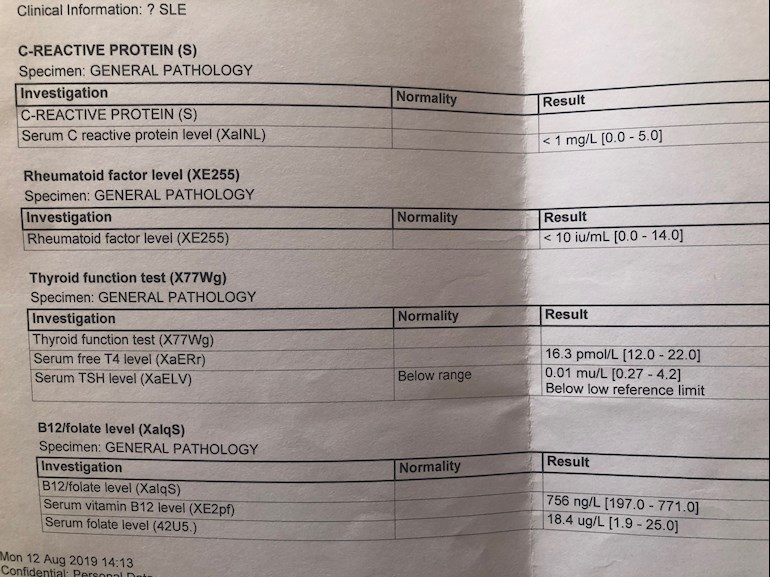Can anyone please help with my latest results? I'm confused! I saw a gyne doctor the other day regarding pelvic pain and she said that it could be down to my thyroid being overactive. I was diagnosed with an underactive thyroid in my early 20s, and Hashimoto's six years ago, but she thinks I've tipped the other way. She did admit she's not an endocrinologist but she said that my TSH level (which has been 0.01 for many years now) suggests I'm overmedicating and need to stop taking the T3, which I am sourcing myself.
I've attached the latest test results, which were done last month. The test I had done in February 2018 were quite different and suggest I was over-medicating, even though I'm still on the same dosage I have been for several years - 125mg Levothyroxine and 12.5mg of Cytomel per day. I fasted before both test, and stopped medication 24 hours before.
Feb 2018: Serum free T4 27.8 (ref range 12-22), Serum free triiodothyronine 10.5 (ref range 3.1-6.8), Serum TSH (0.01 (ref range 0.27-4.2).
I have been feeling really unwell for some time, but it's got worse over the last 18 months and I've had nausea/sickness/aching limbs/exhaustion/anxiety/pelvic pain/back pain/sore throat/sinus issues/headaches. My doctor suspects I may have Addison's Disease based to two low cortisol tests. However, my last test came back as in the 'normal' NHS range, but I was on a very high dose of Oestrogen (200mg) at the time, which apparently gives skewed readings.
I've got an urgent endocrinology appointment in mid November but I'm self-employed and I'm unable to work for days on end due to feeling so unwell, which probably isn't helping with my stress levels! Thanks so much in advance.
